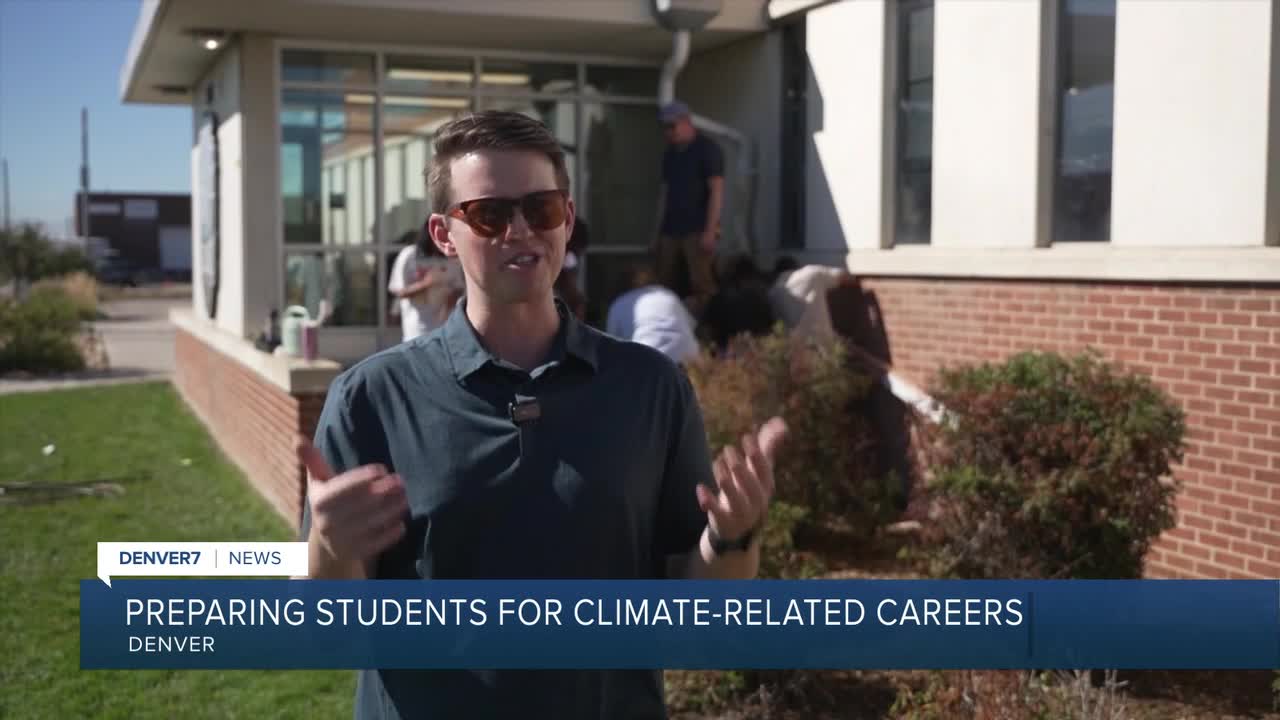DENVER — Students at DSST: Elevate Northeast High School in Denver spent part of their day after school learning how to plant drought-resistant, native landscaping as part of an effort introducing young people to careers in climate-related fields.
The hands-on program, organized by the nonprofit Neighborhood Resilience Corps, pairs students with professionals who show them jobs that will be increasingly important as the climate gets more extreme. This school’s event was led by Avery Ellis, CEO of United Ecology, who is a water-wise plants landscaping expert.

“We’re really here just to learn what is the science behind climate change, behind climate adaptation, and then, most importantly, what can I do about it,” Founder of Neighborhood Resilience Corps Brad Revare said. “Kids might get to hear and interact with professionals, and maybe do a little bit of a project together.”
Liz Bertrand, with the City and County of Denver’s Climate Action Office, said adapting Denver’s natural spaces is increasingly urgent as the city experiences more extreme heat.
“As our climate heats up, we’re going to see more of these events here in Denver,” Bertrand said. “It’s really important that we’re adapting our natural spaces to be able to withstand the urban heat island and extreme weather events.”
Bertrand emphasized native, water-wise landscaping and increased tree plantings as tools that cool neighborhoods, provide shade and protect public health.
“These adaptation strategies help to cool the climate, and they help provide shade and cooling when the heat is really extreme,” Bertrand said. “We have seen more 100-degree days in recent years than any other in the past. It really puts strain on plants that aren’t adapted to this type of climate.”

The experience is also meant to address a growing workforce gap. Revare said many local landscaping companies and other trades lack the specialized skills needed for climate-adapted design and installations. Citing conversations he had with industry experts, he said that only 2-5% of the existing workforce has those capabilities.
Bertrand said job opportunities created by the shift, including arborists and landscapers, will expand as the city plants more trees and adjusts public and private landscapes.
“I do think that there will be growth in arborist jobs just because we will need to maintain and plant more trees in our community,” Bertrand said.
Students at the event expressed enthusiasm for the work. Ninth-grader Keyla described planning the garden’s layout and learning how plant height can create visual design.
“At the beginning I was thinking that maybe we would just be putting the plants in a random order, but it’s turning out pretty good,” Keyla said.
Revare said the best sign of success is when students say they want to pursue related careers after participating.
“These young people, they get it, and if you just give them a little nudge and give them so exposure to doing it, they’re ready to take it and run with it,” Revare said.





